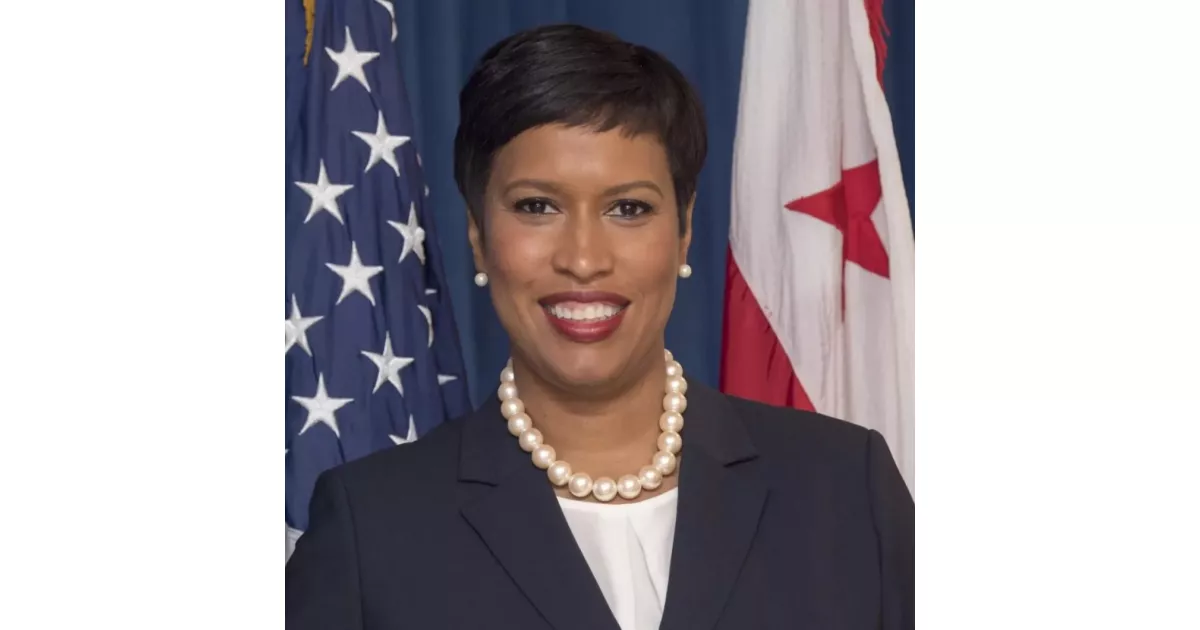Life is full of challenges, and Muriel Bowser faced many. Discover key struggles and how they were overcome.
Muriel Elizabeth Bowser is an American politician and the current mayor of the District of Columbia, serving since 2015. A Democrat, she previously served as the Councilmember for Ward 4 from 2007 to 2015. Bowser is the second female mayor of Washington, D.C., and the first African-American woman to win three consecutive mayoral elections. Her tenure has focused on managing the city's growth and addressing issues like affordable housing and education.
2007: Harry Thomas Jr. embezzled funds from D.C. Trust
Former councilmember Harry Thomas Jr. was found guilty on felony charges for embezzling $350,000 of the D.C. Trust's funds between 2007 and 2009.
2009: Harry Thomas Jr. embezzled funds from D.C. Trust
Former councilmember Harry Thomas Jr. was found guilty on felony charges for embezzling $350,000 of the D.C. Trust's funds between 2007 and 2009.
2013: Congressional investigators concluded that the agency lacked controls
In 2013, Congressional investigators concluded that the agency lacked controls to properly administer a $20 million-a-year, federally funded school-voucher program.
October 2015: Bowser supports Exelon and Pepco merger
In October 2015, Bowser changed her position to support the $6.4-billion merger between Exelon and Pepco. The decision faced criticism regarding transparency and potential ethical concerns.
December 2015: Exelon paid chairman of FreshPAC as a lobbyist
In December 2015, it was revealed that Exelon had paid the chairman of FreshPAC, a political action committee affiliated with Bowser's allies, as a lobbyist.
January 2016: D.C. Trust board learns of misuse of funds
In January 2016, the D.C. Trust's board learned that a former executive director and financial officer used funds to pay tens of thousands of dollars in credit-card charges, including some for personal use. Bowser had recently provided $700,000 in taxpayer funding to the agency.
January 2016: Traffic paralysis due to snowfall
In January 2016, traffic throughout the D.C. region was paralyzed by an inch of snow on untreated roads, leading to numerous accidents and abandoned cars. Bowser apologized for an inadequate response, admitting, "we should have been there earlier."
February 2016: Medical Director Resigns from Fire Department
In February 2016, Bowser's appointee as medical director of the fire department resigned after one year, citing a failed agency and risk to Washingtonian lives.
April 2016: The D.C. Trust declares bankruptcy
In April 2016, the D.C. Trust, a government-funded entity, declared bankruptcy, attributed in part to overspending. The agency had a history of mismanagement, including a former councilmember embezzling funds and a lack of controls over a federally funded school-voucher program. Bowser had recently provided $700,000 in funding to the agency.
2016: Bowser praises Raul Castro
During the 2021 Cuban protests in July, the words "CUBA LIBRE" were painted in front of the Cuban embassy in support of the Cuban people. By July 20, the words were removed by the Bowser administration, who classified the words as "unauthorized". Bowser received criticism for her double standard of praising Raul Castro in 2016.
2016: Officer shootings and body cam footage in the Metropolitan Police Department
From 2016 to 2018 there were 25 involved officer shootings. As of April 2019 only three instances of body cam footage had been released.
2016: Department of General Services Head Resigned
In 2016, the head of D.C.'s Department of General Services resigned and contracting officials were fired following the award of a large construction project, leading to allegations of contracts being channeled to a major Bowser campaign donor.
January 2017: Bowser reaffirms D.C.'s status as a sanctuary city
In January 2017, following Donald Trump's inauguration and an executive order threatening to withhold Federal funding from sanctuary cities, Bowser affirmed that the District would maintain its status as a sanctuary city. This followed earlier statements and protests regarding the city's stance on the issue.
2017: Animal Regulations Proposed and Withdrawn
In 2017, Muriel Bowser proposed several animal regulations, including a ban on backyard chickens, but the proposals were withdrawn following public backlash. Later the same year, restrictions on dogs in outdoor bar patios were eased after public objections.
2017: Report Found Questionable Firings and Illegal Information Sharing
In 2017, a report found questionable firings and illegal sharing of confidential information related to a major Bowser campaign donor. Bowser refused to comment on the report.
2017: Campaign Committee Fined
In 2017, the D.C. Office of Campaign Finance fined Bowser's campaign committee $13,000 for accepting excess contributions during her 2014 mayoral campaign. The campaign returned the excess contributions.
2017: Inspector General finds Snowden improperly used city employees
In 2017, the Inspector General found that Courtney Snowden had improperly used city employees to care for her child. Bowser stated that appropriate management action had been taken but did not elaborate.
2017: Traffic fatalities continue to rise
In 2017, traffic fatalities continued to rise, despite the Vision Zero traffic safety initiative launched in 2015.
March 2018: Report of taxpayer money spent on sexual harassment settlements
In March 2018, it was reported that taxpayers had spent at least $735,000 to settle sexual harassment suits, highlighting the Bowser administration's lack of full understanding of the issue and plans to improve tracking of complaints and settlements.
2018: Protests over traffic safety following biking fatalities
Following a pair of biking fatalities in the summer of 2018, cyclists protested that Bowser had failed at promoting traffic safety, despite the Vision Zero initiative.
2018: Officer shootings and body cam footage in the Metropolitan Police Department
From 2016 to 2018 there were 25 involved officer shootings. As of April 2019 only three instances of body cam footage had been released.
2018: Bowser Opposed Campaign Finance Legislation
In 2018, the D.C. Council passed campaign finance legislation that sought to remove the influence of large donors. Bowser was opposed to the act and said she would not provide financing for its implementation.
April 2019: Limited release of body cam footage in officer shootings
As of April 2019, despite Bowser's support for body cameras for the Metropolitan Police Department, only three instances of body cam footage had been released out of 25 involved officer shootings from 2016 to 2018.
2019: Bowser Administration Took Control of Art Collection
In 2019, Bowser's administration took control of the art collection owned by the D.C. Commission on the Arts and Humanities, leading to a power struggle and staff lockouts.
2019: MPD handcuffs 9 and 10 year old children
In 2019, a 9 year old and a 10 year old were handcuffed by the Metropolitan Police Department in separate incidents, sparking public outrage. Bowser responded by saying that "every case is different" and questioned the appropriateness of circulating photos of juveniles.
2019: Bike advocate killed by driver
In 2019, a prominent bike advocate was struck and killed by a driver along a known dangerous road.
2019: $3.75 Million Missed by Local Organizations
In 2019, local organizations providing assistance to at-risk populations in D.C. missed out on $3.75 million in funding due to a failure by the D.C. Government to submit a timely application.
2020: Pro-Trump rioters protest the results of the 2020 presidential election
On January 6, 2021, pro-Trump rioters and insurrectionists stormed the US Capitol, in protest of the results of the 2020 presidential election. Bowser imposed a curfew in response, to 6:00 pm that night and end at 6:00 am the following day, though it was ignored by numerous pro-Trump rioters and insurrectionists.
January 6, 2021: Bowser imposes curfew during Capitol riot
On January 6, 2021, following the storming of the US Capitol by pro-Trump rioters protesting the 2020 presidential election results, Bowser imposed a curfew in D.C. starting at 6:00 pm that night and ending at 6:00 am the following day. The curfew was widely ignored.
July 2021: DC Recorded 100 Homicides
In July 2021, DC had recorded 100 homicides, the earliest point in the year it had reached this milestone since 2003.
October 2021: Resignation of D.C. Housing Authority Chair Neil Albert
In October 2021, Neil Albert, the chair of the D.C. Housing Authority, resigned after being found to have channeled contracts to a romantic partner. Bowser had previously supported Albert and commented on the FBI raid of his home, stating she holds employees to high standards. His replacement, Dionne Bussey-Reeder, had unpaid income taxes, violating DCHA bylaws.
2021: Traffic deaths in D.C. reach 2020 levels
By mid-November 2021, the number of traffic deaths in D.C. had already reached 2020's level despite the speed limits being reduced to 20 mph in May 2020.
2021: "CUBA LIBRE" painted in front of Cuban embassy
During the 2021 Cuban protests in July, the words "CUBA LIBRE" were painted in front of the Cuban embassy in support of the Cuban people. By July 20, the words were removed by the Bowser administration, who classified the words as "unauthorized". Bowser received criticism for her double standard.
2021: Forensic Crime Lab Loses Accreditation
In 2021, the district's forensic crime lab lost its accreditation following a probe that revealed concealed conflicting findings and examiners were pressured to change results. This led to a criminal investigation and the resignation of the lab's head, Jenifer Smith. Bowser honored Smith shortly after.
September 8, 2022: Bowser declares public emergency in D.C. due to migrant influx
On September 8, 2022, Bowser declared a public emergency in D.C. and established an Office of Migrant Services. This action was in response to the influx of migrants being sent to D.C. from Texas and Arizona. Bowser characterized the situation as a "migrant crisis".
2023: Increase in Homicides
In 2023, the district experienced more homicides than in any other year since 1997, even as many other major cities saw a decrease. Bowser attributed this to the city's approach to public safety.
Mentioned in this timeline

Hillary Diane Rodham Clinton is a prominent American politician lawyer...
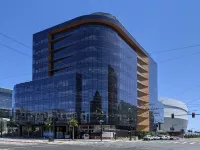
Uber Technologies Inc is a multinational transportation company headquartered in...
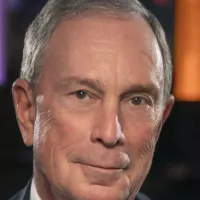
Michael Bloomberg is an American entrepreneur politician and philanthropist He...

Joe Biden is an American politician who served as the...

Washington D C is the capital city and federal district...
Arizona is a landlocked state in the Southwestern U S...
Trending

2 hours ago Priyanka Chopra stuns in Dior and Gaurav Gupta at 'The Bluff' premiere.
2 hours ago Puerto Vallarta: Vehicle Fires and Roadblocks Disrupt Sunday Morning
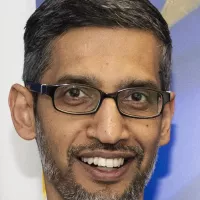
2 hours ago Sundar Pichai envisions AI's transformative potential, focusing on India and global connectivity.

2 hours ago Rhys Hoskins Reportedly Set to Join Cleveland Guardians After Phillies Departure.

2 hours ago Tate McRae stuns in Victoria's Secret dress, linked to Jack Hughes.
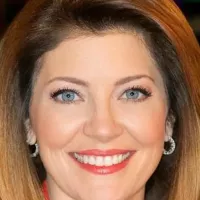
2 hours ago Norah O'Donnell highlights unsung heroines in "We the Women" and celebrates Women's History.
Popular

Jesse Jackson is an American civil rights activist politician and...

Barack Obama the th U S President - was the...

Bernie Sanders is a prominent American politician currently serving as...

Ken Paxton is an American politician and lawyer serving as...

Michael Joseph Jackson the King of Pop was a highly...
WWE Raw a professional wrestling television program by WWE airs...
